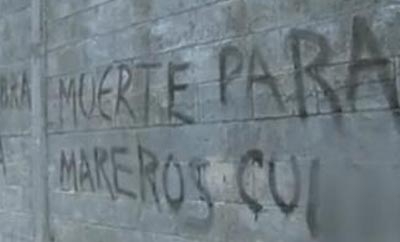Authorities in El Salvador suspect that death squads with possible connections to the police are waging a campaign of “social cleansing” against gangs, suggesting security forces may be reviving a tried and tested response to violence in the country.
The Salvadoran attorney general for human rights, David Morales, said investigators had identified ten murders that bore the hallmarks of death squad killings, reported La Prensa Grafica.
In each case, the victims were gang members, and the perpetrators carried long arms and were dressed in dark clothing similar to police uniforms. Investigators say the hits showed high levels of planning and organization.
Morales clarified that they currently had no proof of police involvement, but were looking into possible connections.
Police Chief Rigoberto Pleites denied any police had taken part in death squad killings, blaming the murders on inter-gang rivalries.
InSight Crime Analysis
El Salvador has a long and troubled history of death squads. During the civil war era, from 1979 to 1992, the country developed a notorious reputation for extra-judicial killings, disappearances and paramilitary death squads, which killed an estimated 8,000 people.
Following the end of the civil war, a new generation of death squads emerged, the most famous of which, “La Sombra Negra” (the Black Shadow) targeted gangs, as well as politicians, human rights defenders and judicial officials.
SEE ALSO: Corruption in El Salvador: Politicians, Police and Transportistas
While La Sombra Negra was principally active in the 1990s, it has resurfaced periodically over the last decade. Within the last month alone, Salvadoran media have reported on Sombra Negra graffiti appearing, and the opening of a Sombra Negra anti-gang Facebook account.
Reports of other death squads have also emerged throughout the year, with residents describing murders of gang members by paramilitary groups composed of members of the security forces and war veterans — reports that authorities have continued to reject.
El Salvador is far from the only country affected by this phenomenon. Throughout the region, violence linked to organized crime has sparked extra-judicial responses, from the vigilantes that have fought off the Knights Templar in Mexico, to police militias in Brazil, which are involved in social cleansing, extra-judicial killings and criminal activities.

